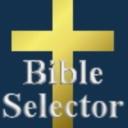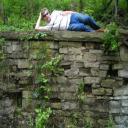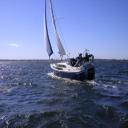Yahoo Answers is shutting down on May 4th, 2021 (Eastern Time) and beginning April 20th, 2021 (Eastern Time) the Yahoo Answers website will be in read-only mode. There will be no changes to other Yahoo properties or services, or your Yahoo account. You can find more information about the Yahoo Answers shutdown and how to download your data on this help page.
Trending News
How exactly did Christianity hinder science in the "Dark Ages"?
Details... please. ._.
13 Answers
- ArtemisLv 77 years ago
The publication of Copernicus' book, De revolutionibus orbium coelestium (On the Revolutions of the Celestial Spheres), just before his death in 1543, is considered a major event in the history of science. It began the Copernican Revolution and contributed importantly to the scientific revolution.
In March 1616, in connection with the Galileo affair, the Roman Catholic Church's Congregation of the Index issued a decree suspending De revolutionibus until it could be "corrected", on the grounds that the supposedly Pythagorean doctrine that the Earth moves and the Sun does not was "false and altogether opposed to Holy Scripture".[90] The same decree also prohibited any work that defended the mobility of the Earth or the immobility of the Sun, or that attempted to reconcile these assertions with scripture.[citation needed]
On the orders of Pope Paul V, Cardinal Robert Bellarmine gave Galileo prior notice that the decree was about to be issued, and warned him that he could not "hold or defend" the Copernican doctrine.[h] The corrections to De revolutionibus, which omitted or altered nine sentences, were issued four years later, in 1620.[91]
In 1633 Galileo Galilei was convicted of grave suspicion of heresy for "following the position of Copernicus, which is contrary to the true sense and authority of Holy Scripture",[92] and was placed under house arrest for the rest of his life.[93][94]
At the instance of Roger Boscovich, the Catholic Church's 1758 Index of Prohibited Books omitted the general prohibition of works defending heliocentrism,[95] but retained the specific prohibitions of the original uncensored versions of De revolutionibus and Galileo's Dialogue Concerning the Two Chief World Systems. Those prohibitions were finally dropped from the 1835 Index.[96]
- UserLv 77 years ago
Here is a syllabus from a University course that deals with the subject. The syllabus alone is somewhat useful in answering your question - and balanced!
http://vserver1.cscs.lsa.umich.edu/~crshalizi/Whit...
Here is an online book - with chapter summaries - that basically follows the same format:
- Anonymous7 years ago
it sure wasn't because they were burning up Chrispy people at the stake
- IlluminatorLv 77 years ago
"Dark ages" is a term that originally referred to art, not society as a whole. It is a term exaggerated by Protestant historians to detract from the truth of just how we are indebted to the Catholic Church for our civilization.
We have all heard a great deal about the Church’s alleged hostility toward science. What most people fail to realize is that historians of science have spent the past half-century drastically revising this conventional wisdom, arguing that the Church’s role in the development of Western science was far more salutary than previously thought. I am speaking not about Catholic apologists but about serious and important scholars of the history of science such as J.L. Heilbron, A.C. Crombie, David Lindberg, Edward Grant, and Thomas Goldstein.
It is all very well to point out that important scientists, like Louis Pasteur, have been Catholic. More revealing is how many priests have distinguished themselves in the sciences. It turns out, for instance, that the first person to measure the rate of acceleration of a freely falling body was Fr. Giambattista Riccioli. The man who has been called the father of Egyptology was Fr. Athanasius Kircher (also called "master of a hundred arts" for the breadth of his knowledge). Fr. Roger Boscovich, who has been described as "the greatest genius that Yugoslavia ever produced," has often been called the father of modern atomic theory.
In the sciences it was the Jesuits in particular who distinguished themselves; some 35 craters on the moon, in fact, are named after Jesuit scientists and mathematicians.
By the eighteenth century, the Jesuits had contributed to the development of pendulum clocks, pantographs, barometers, reflecting telescopes and microscopes, to scientific fields as various as magnetism, optics and electricity. They observed, in some cases before anyone else, the colored bands on Jupiter’s surface, the Andromeda nebula and Saturn’s rings. They theorized about the circulation of the blood (independently of Harvey), the theoretical possibility of flight, the way the moon effected the tides, and the wave-like nature of light. Star maps of the southern hemisphere, symbolic logic, flood-control measures on the Po and Adige rivers, introducing plus and minus signs into Italian mathematics — all were typical Jesuit achievements, and scientists as influential as Fermat, Huygens, Leibniz and Newton were not alone in counting Jesuits among their most prized correspondents [Jonathan Wright, The Jesuits, 2004, p. 189].
Seismology, the study of earthquakes, has been so dominated by Jesuits that it has become known as "the Jesuit science." It was a Jesuit, Fr. J.B. Macelwane, who wrote Introduction to Theoretical Seismology, the first seismology textbook in America, in 1936. To this day, the American Geophysical Union, which Fr. Macelwane once headed, gives an annual medal named after this brilliant priest to a promising young geophysicist.
Myths abound about Galileo. Catholic cathedrals in Bologna, Florence, Paris, and Rome were constructed to function as solar observatories. No more precise instruments for observing the sun’s apparent motion could be found anywhere in the world. When Johannes Kepler posited that planetary orbits were elliptical rather than circular, Catholic astronomer Giovanni Cassini verified Kepler’s position through observations he made in the Basilica of San Petronio in the heart of the Papal States. Cassini, incidentally, was a student of Fr. Riccioli and Fr. Francesco Grimaldi, the great astronomer who also discovered the diffraction of light, and even gave the phenomenon its name.
To say that the Church played a positive role in the development of science has now become absolutely mainstream, even if this new consensus has not yet managed to trickle down to the general public.
The Catholic Church invented our modern day university system.
http://www.catholiceducation.org/articles/history/...
Early Protestant Hostility Towards Science
(that you never hear about)
- How do you think about the answers? You can sign in to vote the answer.
- MelodyLv 57 years ago
Conversely, the non-Christians were hindering the Christians from staying close to the Lord, otherwise it wouldn't have been the Dark Ages. Christians are the ones who bring in the light and truth of Jesus along with the love, joy, peace, etc.
- pugjw9896Lv 77 years ago
False religion DID hinder science in the middle ages...
By claiming the EARTH WAS AT THE CENTRE OF THE UNIVERSE
Every time the Bible mentions science, it is ALWAYS ACCURATE.
(Isaiah 40:22) There is One who dwells above the circle of the earth, And its inhabitants are like grasshoppers. He is stretching out the heavens like a fine gauze, And he spreads them out like a tent to dwell in.
Source(s): NWT - 7 years ago
were you home schooled by religious fanatics?
they burnt both books and people
- Anonymous7 years ago
Pretty much by making anything science related a heresy. Science was only hindered by European Christians in Europe. It flourished in the Arabic and Asian worlds. Roman Catholicism was the only accepted religion in Europe and science was endemic to the stranglehold the Church had on day to day life. ie knowledge is power. Literacy was virtually non-existent, even amongst the nobility. Usually only religious bods had any real education and that was expected to be limited to what the Church decided was acceptable or not. Mostly it was politically motivated. People can't question your motives if they can't read what you've written.
There's lots more so I suggest you Google.
- NameNotRequiredLv 67 years ago
They didn't.
The dark age in Europe was the first third of the Medieval period, so called because literacy rates plunged and there are very few documents from this period. But that had a lot more to do with the Germanic invasions than anything the church did. In many cases Catholic monks were desperately copying as many books as they could before the papyrus disintegrated and in several cases took over the role of local governments because there was just no one else to do it.
- 7 years ago
Well, I can't provide all that bit if you want detailed details check out, Foxe's book if martyrs. In the sources I'll put a link.






